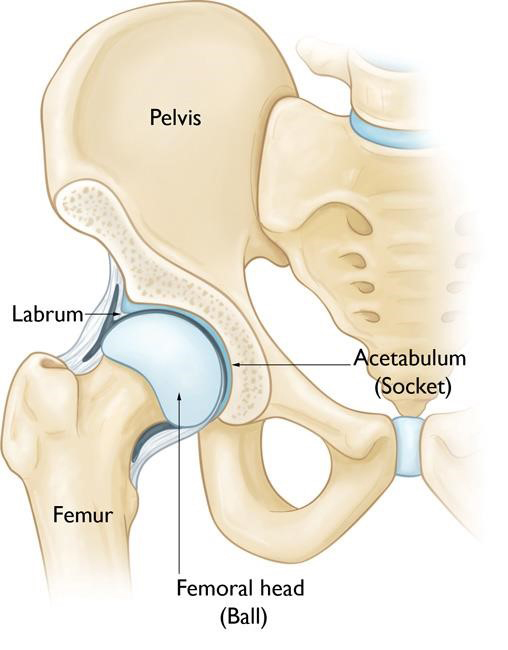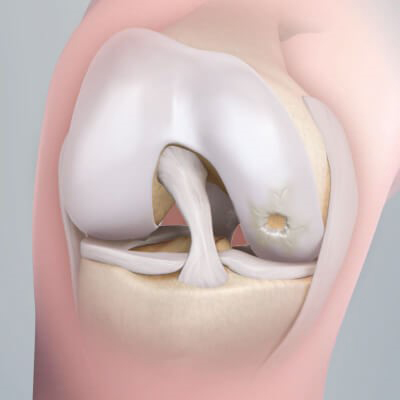
One could say the field of orthopedics is moving as fast as a batter rounding the bases, or a wide receiver sprinting toward the end zone.
Dr. Matthew Smith with Mercy Orthopedic Associates brings his patients not only the latest technology and advances, but an insight into keeping athletes ‐ everyone from pros to the more common weekend warrior ‐ as active as possible.
Dr. Smith says there’s a “wow” factor to his fellowship with the Steadman Hawkins Clinic Denver, during which he worked with the Denver Broncos and Colorado Rockies. But his main takeaway was a keen familiarity with the decision-making tree in evaluating an injury or condition. The world of professional athletics is high-stakes, and forces one to consider decisions carefully.
He’ll see you for any type of shoulder, hip, or knee pain, and prescribe anything from rest to physical therapy to arthroscopy or arthroplasty (joint replacement). Among his remedies are the latest techniques in “hip preservation” and an exciting development in patching up damaged cartilage.
Hip Preservation
This is a relatively new field that spawned from European research into the onset of early arthritis in hips. Arthritis can start as early as the late teen years. Hip preservation is all about preserving cartilage, and often that has to do with stabilizing the labrum.
The labrum is a gasket that runs around the lip of the hip socket and serves as a seal between the socket and the ball. Labrum tears are very common. If untreated, these tears can lead to extra wear on the adjacent cartilage.

If treatment such as physical therapy or injections won’t take away the pain (often felt in the groin), then arthroscopic surgery might be the next step to consider. Prior to surgery, X-rays may reveal arthritis; an MRI might be necessary to show a labral tear or damaged cartilage.
During surgery, Dr. Smith looks at the hip joint with a tiny camera at the end of the scope. He’ll analyze the ball and socket, and look at the cartilage on both sides, as well as the labrum. Labral tears can be repaired using small screws with sutures to pull the labrum back into place, or by removing the torn labrum and replacing it with a cadaver labrum. During the procedure, any bony bumps causing wear and tear will be shaved smooth.
The growing belief is that this surgery “preserves” the hip joint by decreasing the risk for early arthritis and the need to replace the hip joint in the future.
MACI
Staying at the top of his game takes some work, and Dr. Smith is constantly reviewing peer journals and training with new technology. Matrix-associated autologous chondrocyte implantation (MACI) sounds fancy, and, well, it truly is. Cartilage just won’t heal itself. MACI, a trade name, is a method of repairing damaged knee cartilage using a replacement patch developed from your own cells. ACI, a generic term, has been around for several decades. The new development in this procedure is the patch.

In a typical case, you’ve torn your anteriorcruciate ligament (ACL) and simultaneously knocked off a chunk of cartilage. A few years after the injury, and you’re needing help with a painful or immobile knee. MACI is among the options. Both patients and surgeons appreciate this method because the patch makes this procedure quicker and simpler than other cartilage replacement options, including ACI. Also, there is an appeal to using a patch grown from your own cells.
Some patience is involved. The first step is an arthroscopy to remove a piece of nonweight-bearing cartilage. That piece is sent to a laboratory, where the cartilage-producing cells are grown and impregnated into a collagen patch. This takes about six weeks.
Next, surgery is performed. Damaged cartilage is removed, and then the patch is fitted and implanted; it is affixed with a fibrin glue. The patch mixture gradually expands to replace the missing cartilage. Meanwhile, rehab begins.
“It allows your own cartilage to fill in the gaps,” Dr. Smith says. The divot in your knee is gone, with no negative long-term impact. And with the pain relieved, you can get back to your active life.
Call Mercy Orthopedic Associates at 970-764-9400 for more information or to schedule an appointment.





